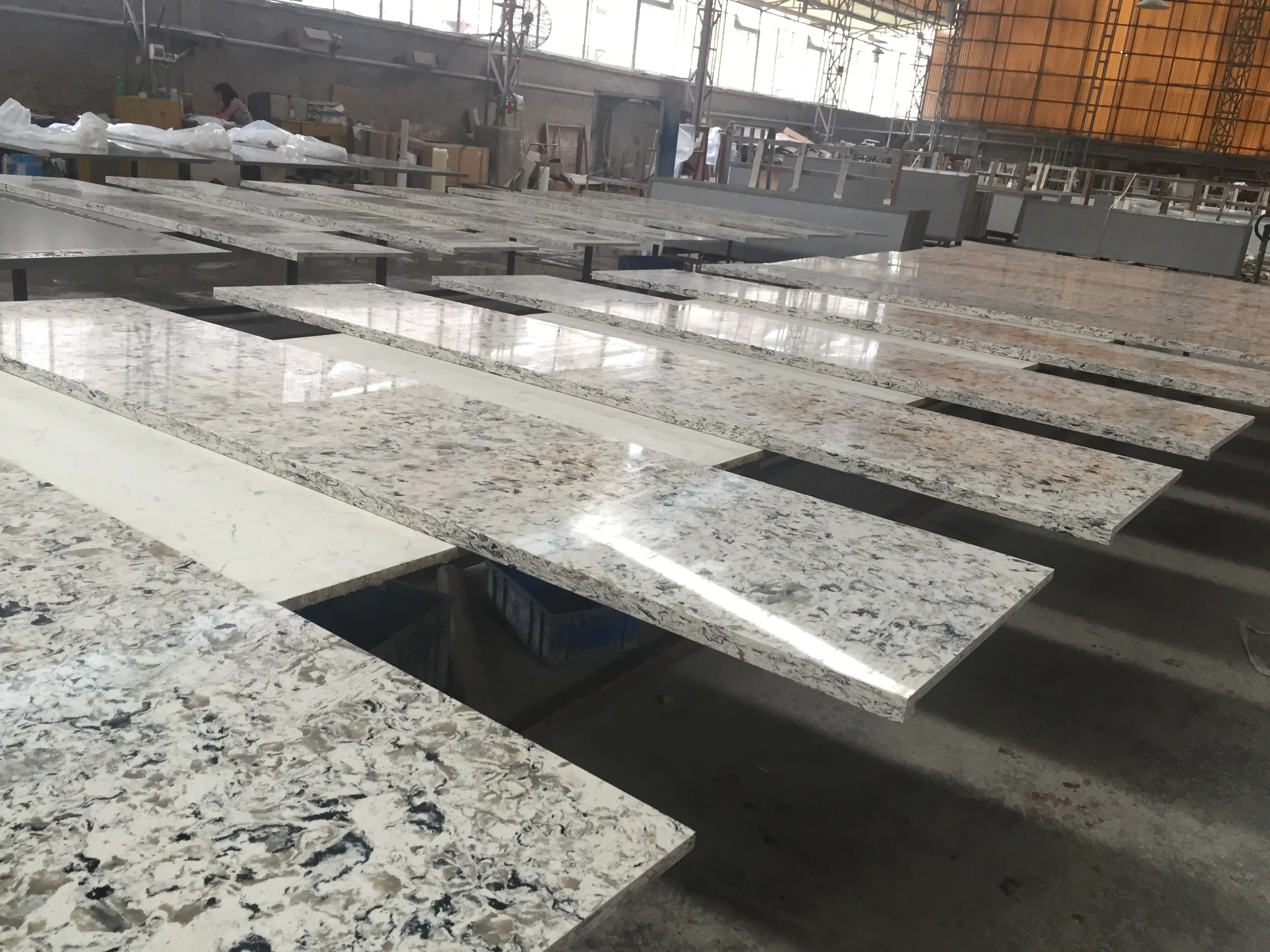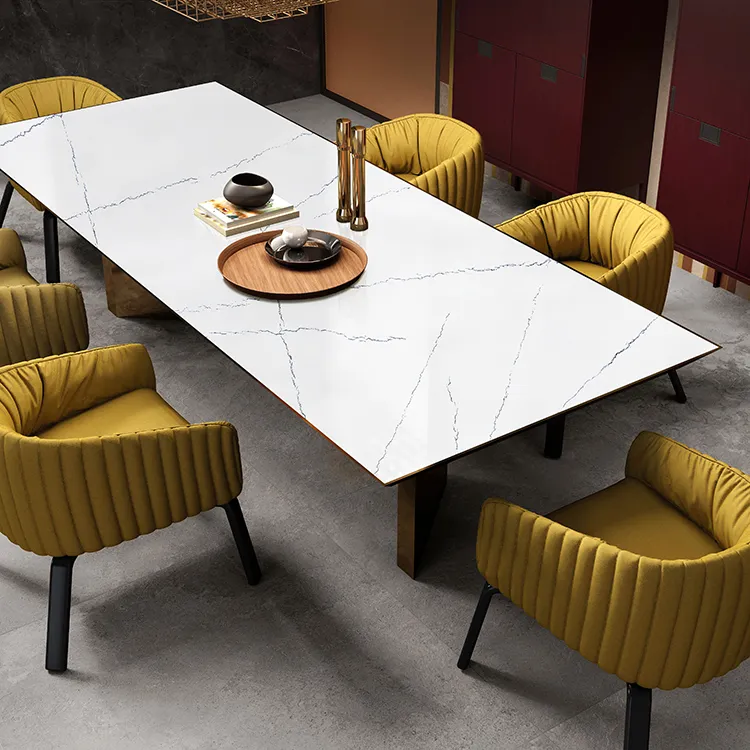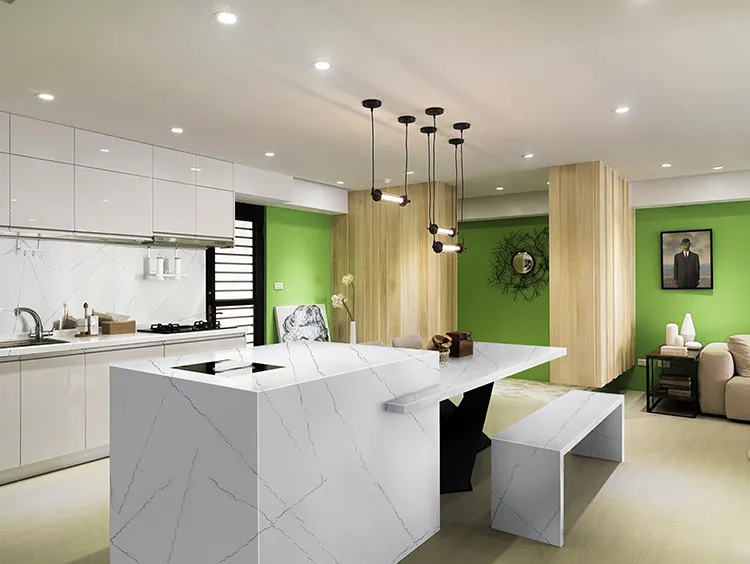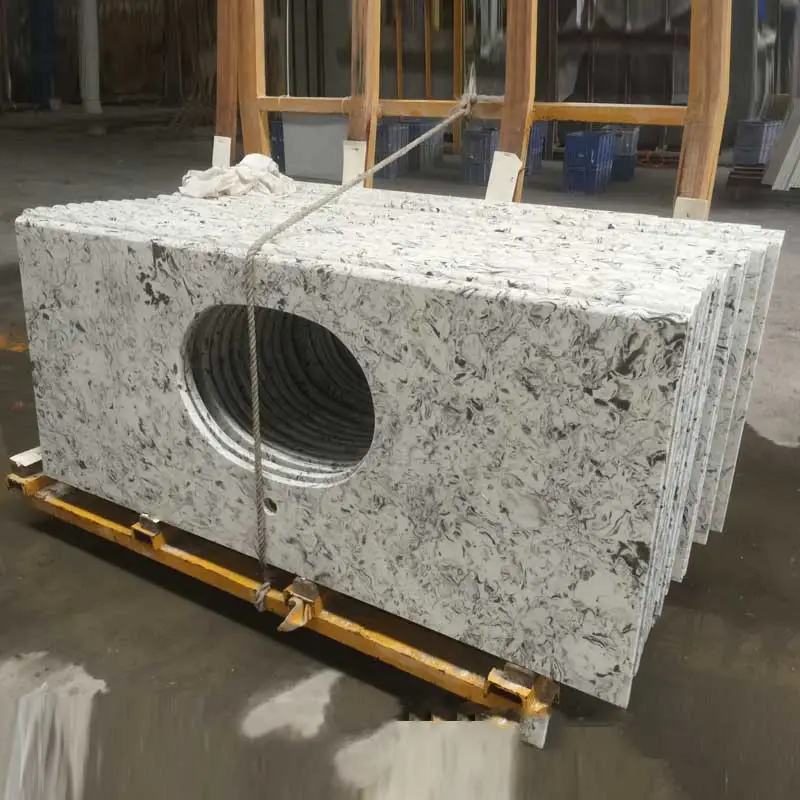Quartz countertops are a popular kitchen and bathroom countertop material known for their durability, beauty and ease of maintenance. In particular, 3cm thick quartz countertops strike a good balance between strength and beauty. However, when installing quartz countertops, many people are concerned about one question: How far can a 3cm thick quartz worktop span without support?
This question is related to the safety of countertop installation and stability in long-term use. This article will analyze in detail the span limiting factors of quartz countertops without support, including material properties, load capacity, actual application scenarios and professional installation recommendations.

What are the material properties of quartz countertops?
Quartz worktops are made of about 90%-95% natural quartz particles and adhesive materials such as resins through high pressure pressing. This structure makes it both hard as natural stone and easy to process as artificial stone. Quartz itself is an extremely strong mineral with a Mohs hardness of 7, second only to diamond (Mohs hardness is 10). However, despite its good compressive strength and hardness, quartz countertops have limited flexural strength, especially over long spans and without support.
Compressive Strength vs. Flexural Strength
Quartz worktops have very high compressive strength, which means they can withstand considerable weight without cracking or deforming under pressure applied in a vertical direction. Flexural strength, however, represents the ability of the countertop to remain stable and unbroken when subjected to horizontal stresses, such as bending forces. For any stone countertop, flexural strength is often an important factor that limits its unsupported span. Although quartz countertops have better flexural strength than other natural stones, they can still bend or even break when left unsupported for long periods of time.
Density and Elastic Modulus of Quartz Countertops
Quartz countertops typically have a density of around 2.4-2.5 g/cm3, which means that it weighs a lot on its own. A 3 cm thick quartz countertop weighs about 23.5 pounds per square foot. The higher the density of the material, the greater its deadweight, so when a quartz countertop spans a large distance without adequate support, its own weight may become one of the reasons for bending or breaking. In addition, the low elastic modulus of quartz countertops means that it is not as elastic and tough as steel or wood, and cannot resist deformation under long-term load.

How far can a 3cm quartz countertop span without support?
In order to answer the question "How far can a 3cm thick quartz worktop span without support?", we need to analyze the force performance of quartz countertops in different situations from a mechanical perspective. The unsupported span problem involves factors such as the bending strength, elastic modulus, thickness and width of the quartz countertop.
Mechanical analysis of materials
When calculating the unsupported span of a quartz worktop, we can refer to the "beam bending formula" in engineering mechanics. This formula can help us estimate the force of the countertop under a specific span, as well as the maximum deflection that may occur when a load is applied (such as placing a heavy object).
The basic form of the bending formula is: δ=ML3/48EI
Where:
· δ is the deflection (how much the countertop bends);
· M is the force acting on the countertop (i.e., the countertop's own weight or additional load);
· L is the unsupported span length;
· E is the elastic modulus of the material (about 30-50 GPa for quartz countertops);
· I is the moment of inertia of the section, which depends on the thickness and width of the countertop.
The thicker the quartz countertop, the stronger its bending resistance. For a 3 cm thick quartz countertop, the moment of inertia of the section is much larger than that of a 2 cm thick countertop, which means that under the same span, a 3 cm thick countertop can withstand more bending stress without being easily deformed. However, the width of the countertop and the installation environment will also affect the final deflection.
Actual unsupported span
Based on the above mechanical analysis, in general, the maximum unsupported span of a 3 cm thick quartz countertop without additional support is recommended not to exceed 24-36 inches (60-90 cm). The specific span also depends on the following factors:
● Countertop width: The wider the width, the better the load-bearing capacity.
● Countertop use: If you need to place heavy objects on the countertop, it is recommended to shorten the unsupported span.
● Countertop edge treatment: Chamfering or other decorative treatments may weaken the bending strength of the countertop.
In actual applications, although the countertop span can be slightly extended, it is recommended to follow this safety range to avoid structural problems in long-term use, such as cracks or bending.

What are the factors affecting the unsupported span?
Although it is theoretically possible to calculate the maximum span of a quartz worktop without support, in actual applications, many external factors will affect the stability of this span and the durability of the countertop.
Self-weight and additional loads
The self-weight of the quartz countertop itself is an important consideration, especially when its thickness is 3 cm, its weight will be much greater than that of a 2 cm thick countertop. Coupled with additional loads (such as kitchen appliances, cooking utensils, cutting boards, etc.), the span of the quartz worktop will be more limited. Therefore, in environments such as kitchens where heavy objects are often used and placed, reducing the unsupported span of the countertop can effectively extend its service life.
Design of the support structure
The design of the support structure of the quartz worktop is one of the key factors in determining the unsupported span. If the support structure of the cabinet or island is unreasonable during installation, the unsupported span of the countertop is too large, and the countertop may deform or break due to uneven load-bearing. In some cases, installing support beams or metal brackets can effectively disperse the weight of the quartz worktop, thereby increasing the unsupported span.
Environmental conditions
Indoor and outdoor temperature changes, humidity, and other environmental factors may also affect the stress of the quartz countertop. Although quartz countertops are heat-resistant and suitable for kitchen use, temperature differences or long-term humidity in extreme environments may cause aging of the adhesive resin, thereby affecting the structural stability of the countertop. Therefore, unsupported quartz worktops may need to reduce their span to improve safety in special environments.
Countertop processing
Quartz countertops may be processed by opening holes, cutting corners, or chamfering during processing. These processing processes will affect the overall structural strength of the countertop, especially when it is unsupported. If a larger opening is cut into the countertop (such as for a sink or stove), the unsupported span needs to be further shortened to avoid the opening becoming a stress concentration point on the countertop, causing cracks or breaks.

How to enhance the unsupported span capacity of a quartz countertop?
Although a 3 cm thick quartz worktop has good strength and load-bearing capacity under normal installation conditions, if a larger unsupported distance needs to be spanned, its stability can be enhanced in the following ways.
Use metal brackets
Metal brackets are a common way to reinforce countertops, especially in island or bar areas. These brackets are usually hidden under the countertop and can disperse the weight of the countertop and increase the load-bearing capacity of the unsupported span.
Add support columns
When designing a countertop with a larger span, adding support columns is a direct and effective method. These support columns can be designed as part of the countertop to coordinate with the overall style of the cabinets or kitchen island.
Use thicker quartz countertops
While a 3 cm thick quartz worktop is already more load-bearing than a 2 cm thick countertop, using a thicker countertop can further enhance bending strength if longer unsupported spans are required. Although quartz countertops are generally available at a maximum thickness of 3 cm, in certain projects with high load-bearing requirements, custom thicker countertops may be considered.
Professional installation and reinforcement
No matter the material, professional installation is essential to ensure the longevity of the countertop. The installation of quartz worktops requires experienced technicians to ensure that the support structure is reasonable and stable. At the same time, in places with larger spans, pre-reinforcement can prevent potential problems in the future.

